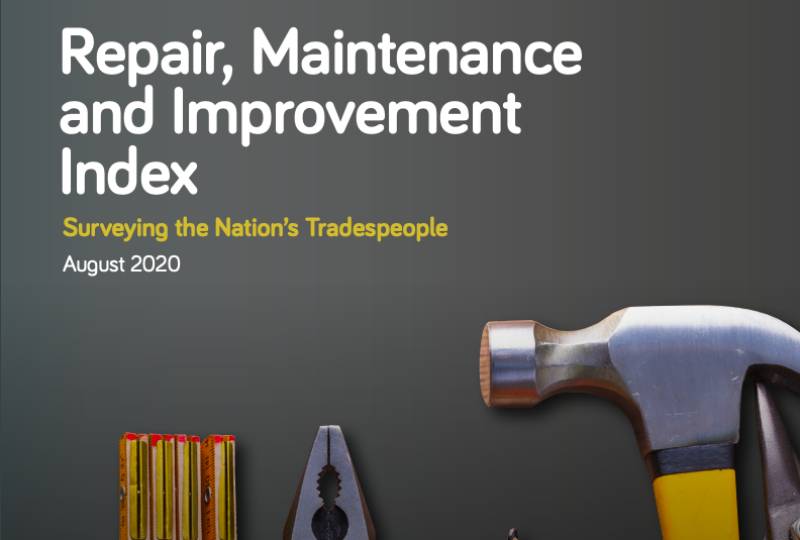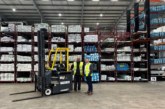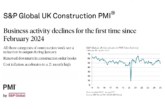
Separate customer surveys conducted by both Jewson and Travis Perkins have each described high levels of underlying positivity from trade professionals as the sector reestablishes itself in the wake of the Covid-19 pandemic.
A recent study has shown that 73% of tradespeople are optimistic about the amount of work in the pipeline over the next six months, as the building trade recovers from the impact of the nationwide lockdown.
A survey of over 650 tradespeople and homeowners – commissioned by Jewson – highlighted a positive outlook from those in the construction trade. This is despite the pressures that the COVID-19 pandemic has put on the industry over the last six months.
69% of the tradespeople interviewed said they were expecting either more work (24%) or the same amount of work (45%) in the next six months compared to normal, as homeowners across the UK become more willing to allow tradespeople back into their homes.
While more than half (51%) of homeowners have completed more of the work themselves than they would have done pre-lockdown, in the longer term only 15% intend to do this. The majority (85%) stated that they’d use a tradesperson to complete the same amount of work or more, compared to before the coronavirus pandemic.
And with much of the UK opting to stay at home this summer, the extra money in people’s pockets saved from cancelled trips abroad may be going towards home improvements – highlighted by the fact that a staggering 77% of UK homeowners are planning to carry out work to their homes in the next 6 to 12 months.
Customer Director at Jewson, Andrew Cushing, said: “We’ve made it clear since the outset of lockdown just how essential the building industry is, and have done our utmost to ensure our customers – a lot of whom are self-employed – can remain on the tools and get the materials they need.
“We’re delighted that the outlook is positive for the trade, long may that continue, and we look forward to helping our customers grow their businesses.”
The survey was carried out by Jewson across June and July, in collaboration with market research agency Two Ears One Mouth Ltd.
A similar survey of over 1,300 tradespeople across the country was conducted by Travis Perkins, which also yielded optimistic results.
Half of the respondents, who include the nation’s builders, electricians, plumbers, joiners and other tradespeople, believe that their workloads will increase and that they will need to purchase new materials over the next two months, according to a survey conducted by Travis Perkins plc.
The first publication of the Repair, Maintenance and Improvement (RMI) Index has revealed that the current confidence index score of upcoming workload is 52, higher than it was in the aftermath of the Brexit referendum in June 2016 (45), and significantly higher than at the start of the global financial crisis in September 2008 when it slumped to -7.
The poll of over 1,300 tradespeople highlights that UK tradespeople believe that the overwhelming majority of their work (72%) will come from domestic repairs and maintenance, compared to 16% from new build housing, 15% from commercial and industrial activity, 15% from public sector work and only 2% think work will come from infrastructure projects.
When asked about Brexit, over a third of respondents (35%) believe that a “no deal” outcome to negotiations will have no impact on their business and almost all (97%) of all respondents are taking no measures to prepare for such an outcome.
Read the Repair, Maintenance and Improvement Index and full results here
Commenting on the results of the survey, Nick Roberts, Travis Perkins CEO, said: “I am reassured to see the nation’s tradespeople are feeling upbeat about the outlook for their businesses over the next two months. Despite the economic challenges posed by the ongoing pandemic, the majority of tradespeople told us that they are, on the whole, looking towards increased workloads, greater requirements for materials and a resurgent domestic repair and improvement market. The Government may be looking to build, build, build to support the UK’s recovery, but so it seems are thousands of UK homeowners.
“While no one is suggesting that the current economic headwinds are insignificant, it is notable that respondents’ confidence in expected workloads for the next two months compares favourably to the historic data we collected in the immediate aftermath of the collapse of Lehman Brothers in 2008 and the weeks following the Brexit referendum result in 2016.
“The nation’s army of tradespeople already significantly contribute to our economy, but we are also acutely aware of the hugely important role they have played in supporting their communities during the pandemic. Their confidence in the near-term outlook and resilience in the face of such challenging market conditions is something that should give us all cause for optimism at this time.”









